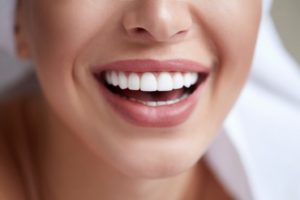 Veneers are a very durable cosmetic treatment. However, they are not invulnerable to breakage and stains. Temporary veneers, in particular, tend to be more prone to damage than their permanent counterparts. What can you do to make your veneers last longer? One important step you can take is to make a few diet changes with porcelain veneers in East Hartford. Here are some practical tips on how and what to eat:
Veneers are a very durable cosmetic treatment. However, they are not invulnerable to breakage and stains. Temporary veneers, in particular, tend to be more prone to damage than their permanent counterparts. What can you do to make your veneers last longer? One important step you can take is to make a few diet changes with porcelain veneers in East Hartford. Here are some practical tips on how and what to eat:
Avoid Extremely Hard Foods
Just like natural teeth, veneers may break if they are exposed to extremely hard foods. This means you should avoid biting down on things like ice and jawbreaker candies. When you eat popcorn, you should be cautious so you do not accidentally chip a veneer on an unpopped kernel. Other hard foods, such as candied nuts and raw apples, do not have to be avoided entirely. However, it would be wise to move them directly to your back teeth for chewing.
Be Wary of Sticky Foods
Permanent veneers are securely bonded onto the teeth, so you may be able to enjoy sticky foods in moderation once you get them. However, temporary veneers are more likely to get pulled off of the teeth by things like taffy, gummy candies, and toffee. It is generally best to stay away from such treats until your permanent veneers are in place.
Minimize Staining
Permanent veneers are made out of a nonporous material that does not absorb pigments, meaning that they are highly resistant to stains. Still, they can become discolored over time. Temporary veneers are even more vulnerable to stains. Therefore, if you want your new smile to stay as bright as possible for as long as possible, you should minimize your intake of dark liquids, including things like coffee and red wine.
When you do drink dark liquids, it is best to consume them through a straw. This minimizes their contact with your teeth and reduces the chance that they will stain your veneers.
Choose Low-Risk Foods
With temporary veneers, you may have to limit yourself to a diet of fork-tender foods (anything that is easy to cut with the side of a fork) that are minimally pigmented. Some examples of foods that are unlikely to harm your veneers include:
- Pasta
- Eggs
- Soft bread
- Cooked vegetables
- Chicken
- Bananas
After you receive your permanent veneers, you can incorporate a wider variety of foods into your diet. However, your continued caution will protect your new look and help it to stand the test of time.
For most people, veneers do not require any drastic changes to their eating and drinking habits. A few small adjustments could be all you need to protect your investment in your smile!
Meet the Practice
Our practice features a large team of dentists and specialists, all of whom care deeply about helping our patients enjoy healthy, attractive smiles. Whether you are thinking about getting veneers or already have them and want assistance with maintenance, we would be pleased to serve you. To find out more about our practice, contact us at 860-288-5786.
